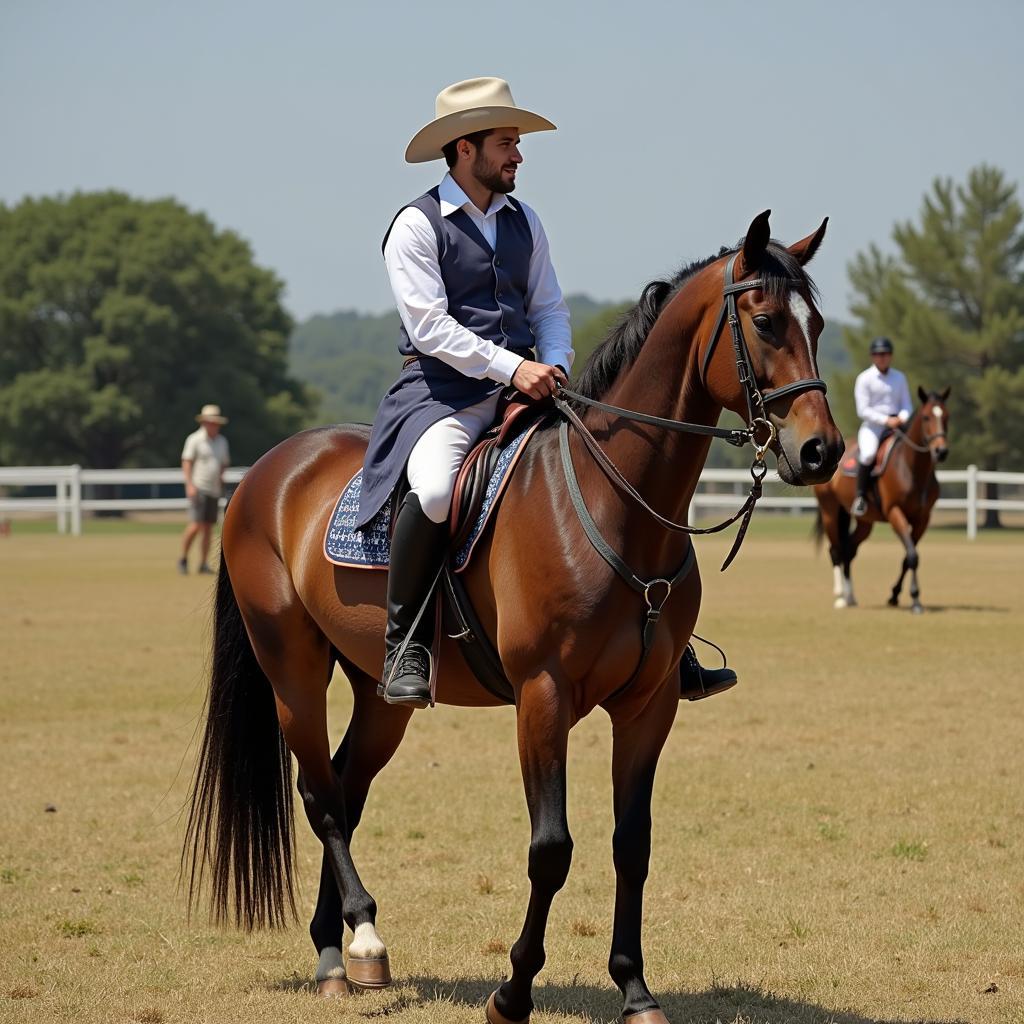The term “Jewish Horse” can spark curiosity and conjure a variety of images. It’s not about a specific breed, but rather the intersection of horses and Jewish culture, history, and art. This exploration delves into the multifaceted relationship between horses and the Jewish people, from ancient times to the present day.
Horses in Jewish Tradition: A Historical Perspective
Throughout history, horses have played significant roles in Jewish life, often symbolizing strength, freedom, and even divine intervention. In the Torah, horses are mentioned in numerous contexts, from the patriarchs’ travels to the battles fought by the Israelites. chagall horse The horse also holds a special place in Jewish mysticism, representing spiritual ascension and the power of prophecy.
From Biblical Times to Modern Eras
The relationship between Jews and horses has evolved over time. While horses were essential for transportation and warfare in ancient times, their role shifted during periods of diaspora and persecution. In more recent history, horses have been featured prominently in Jewish art and literature, often symbolizing resilience and hope.
The Horse in Jewish Art: A Symbol of Resilience
Jewish artists have frequently depicted horses in their work, imbuing them with symbolic meaning. Marc Chagall, for instance, often featured horses in his paintings, representing freedom, nostalgia, and the connection to his Jewish heritage. marc chagall horse These artistic representations reflect the enduring bond between horses and the Jewish people.
Exploring Chagall’s Equine Imagery
Chagall’s use of the horse motif is particularly noteworthy. His horses often appear as fantastical creatures, soaring through the air or intertwined with human figures. This artistic license allows Chagall to explore themes of spirituality, memory, and the enduring power of the human spirit.
What Does “Jewish Horse” Mean Today?
Today, the term “jewish horse” might be used colloquially to refer to a horse owned by a Jewish person or a horse featured in Jewish cultural contexts. It’s crucial to understand that there isn’t a specific breed designated as “Jewish.” The term highlights the continued presence of horses in Jewish life, whether through ownership, artistic representation, or historical significance.
 Modern Jewish Equestrian
Modern Jewish Equestrian
The Enduring Bond
The connection between horses and the Jewish people is a testament to the animal’s enduring power and symbolism. From the practical roles they played in ancient times to the artistic inspiration they provide today, horses remain an important part of Jewish culture and history.
In conclusion, the “jewish horse” is not a breed but a concept, representing the multifaceted relationship between horses and Jewish culture, history, and art. Understanding this connection provides a richer appreciation for the horse’s significance within the Jewish experience.
FAQ
- Is there a “Jewish” horse breed? No, “Jewish horse” refers to the cultural and historical connection, not a specific breed.
- Why are horses important in Jewish tradition? Horses symbolize strength, freedom, and divine intervention in Jewish texts and history.
- How did Marc Chagall use horses in his art? Chagall often depicted horses as symbols of freedom, nostalgia, and connection to his heritage.
- What does “Jewish horse” mean today? It can refer to a horse owned by a Jew or featured in Jewish cultural contexts.
- Where can I learn more about horses in Jewish culture? Explore resources on Jewish history, art, and literature.
For any further assistance regarding horses and pet care, don’t hesitate to contact us. Call: 0772127271, Email: [email protected] Or visit us at: QGM2+WX2, Vị Trung, Vị Thuỷ, Hậu Giang, Việt Nam. We have a 24/7 customer support team.